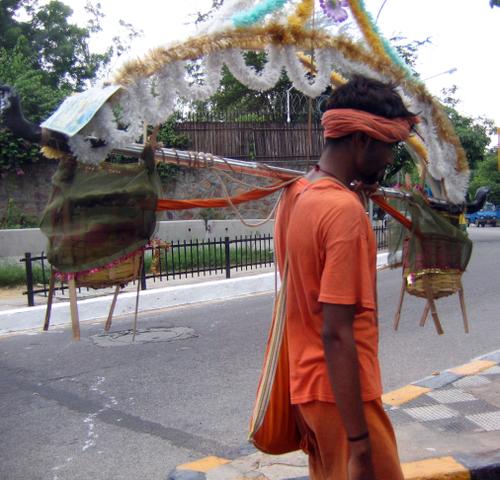Someone who has never attended Woodstock School may legitimately wonder why anyone would wish to send their child there.
I went to Woodstock in 1977 because I had no better educational choice (except to continue with correspondence school in Bangladesh, where my parents were living and working – a year of which had already been more than enough). “No other choice” was the case for many Woodstock students in those days, when jobs in development, missions, or international business were more likely to send Westerners overseas, and there were fewer international schools in odd places around the world for their kids to attend.
Woodstock nowadays is one of Asia’s elite schools, preparing students for still-much-desired admission to universities in the US and UK (as well as Asia’s own top universities). But it’s not so obvious why any student should come from outside of Asia. And there are plenty of reasons not to. Let’s look at some of those first.
(Some of) The Reasons Against
It’s Boarding School
Woodstock is a boarding school, a concept foreign to American and most European culture: if you love your child, how can you bear to send him/her away? In Italy, boarding school is widely considered something that parents do with children whom they cannot control at home, and/or it’s thought to show a lack of proper parental feeling. (Although we have several Italian friends who went to boarding schools in Italy and elsewhere and loved it: the negative attitude seems to come from Italians who have no actual experience of boarding.)
It’s in India!
Secondly, Woodstock is in India, specifically in the small town of Mussoorie, 7000 feet up in the foothills of the Himalayas. A location which, much as I love it, is what the foreign service used to call a “hardship post”. It’s cold and wet during the monsoon, cold and sometimes snowy during the winter (though fall and spring are gorgeous and not too hot).
School facilities and infrastructure are enormously, unrecognizably improved since I attended 25 years ago, but most of the buildings are still old and unheated, many cannot be reached except on foot, and the overall level of comfort is well below what we in “the West” are accustomed to.
Physical discomforts are bearable, perhaps even character-building, but there are worse potential dangers. Health is a concern: it’s a lot easier to get catastrophically sick in India, and a near-certainty that at least some “Delhi belly” will befall any traveller there (although, during our 2005 trip to India, I got sick and Ross did not. My own fault – I should not have had that lassi in Jaipur…)
On the other hand, India has very good health care these days – so good that people are travelling from the US, Canada, and UK to have non-urgent surgery and other treatment far more cheaply in Indian hospitals than they could at home (“medical tourism” they call it, and it’s a booming business).
…and there are plenty more aspects of India that the average Western parent inexperienced with Asia will find frightening, bizarre, and incomprehensible. But let’s not dwell on them for the moment.
The Reasons For
It’s a Nurturing Environment
At a Woodstock reunion long ago I talked with an older alumnus whose own children were then college age.
“How come your kids never went to Woodstock?” I asked him.
He explained that his daughter had done very well at home in Canada, was well-adjusted, made good grades, had lots of friends, etc. He had never even considered sending her to Woodstock, because there was no reason to take her out of her happy situation.
His son, on the other hand, had had both social and academic problems at school, and didn’t seem to be going anywhere with his life after high school. The alumnus thought his son might well have benefited from Woodstock, as a total change of scene if nothing else, but his wife would not hear of it: the idea of sending her son off to school in India was just too strange and scary. The alum regretted that they hadn’t tried it.
I’ve spoken with many alumni who feel that they benefitted enormously from Woodstock, even if they were there only a year or a semester. One of my own classmates came for her senior year, having done all the rest of her schooling in a standard US high school, where she was considered something of a weirdo. She credits Woodstock with making her feel that she was fine just the way she was, giving a huge boost to her self-confidence. (Years later, my own daughter said the same.)
For me, Woodstock had a tremendously positive impact on my life, as I have written before: “The four years I spent there nurtured me, gave me self-confidence, and helped to heal the wounds of my parents’ divorce and other upheavals. Years later, my therapist told me that if I hadn’t gone to Woodstock, I would probably have ended up ‘gibbering in a corner somewhere.'”
Do you have to be among the walking (psychologically) wounded for Woodstock to do you good? Of course not. Plenty of healthy, well-adjusted kids have gone there and enjoyed it. The Woodstock environment is nourishing and nurturing for just about everyone. How and why it is this way is a topic for a much longer article!
It’s in India!
At a reunion in London in 2003, I met the parents of a German boy who had just gone to Woodstock for his junior year abroad. The parents had travelled to London to meet alumni because they knew very little about the school or the people it produced. How on earth did their son end up there?
He had been doing well in school in Germany, but was not satisfied with the level of English he was learning. (I assume that his father, an international businessman, had drilled into him how important it is in today’s global world to speak good English.) So the boy wanted to go to a school where he could study in English, but exchange programs in the US or Canada did not appeal to him (possibly for the same reason – no choice of the actual school – that similar exchange programs from Italy did not appeal to Rossella).
His father, whose business took him frequently to China, suggested that he look for a school in Asia: “Asia is the future,” he told his son.
The boy did a search online, and came up with Woodstock. His father stopped by for half a day on one of his China trips, approved of what he saw, and off the boy went. I believe he stayed there a second year as well, and graduated with his class.
Unusual? Certainly. Weird? Maybe. But the father had a point. The Economist recently stated that “India may overtake Germany as the world’s fifth-biggest consumer market by 2025.” The future, indeed.
Indian culture is already felt throughout the world. In a recent episode of the American TV show Heroes, the Indian character used the word goondas without explaining it, clearly expecting both the character he was speaking to and the audience to understand it (the meaning was clear enough from the context: goondas are thugs – and thug is also originally an Indian word). Anyone who wishes to be successful in an increasingly globalized and Indianized world will certainly benefit from knowing India well! (China, too, but I don’t know of any Woodstock-like schools there. Maybe Woodstock should offer courses in Chinese language and culture.)
Enduring Friendships
Many alumni and former staff gathered in Mussoorie to celebrate Woodstock’s 150th anniversary in 2004, some bringing family. My classmate Deepu’s daughter said to her afterwards: “I see you with all your old friends and hear the great stories you tell. When I’m old, I want to have stories like that, too.” She has now been at Woodstock for several years herself, and presumably has her own friends, and stories to tell with them.









